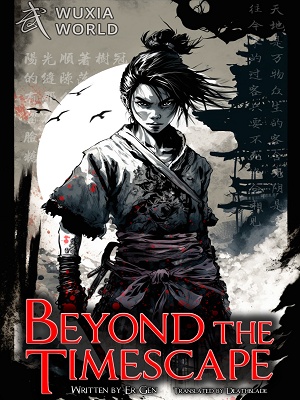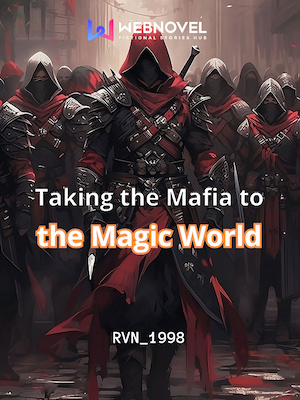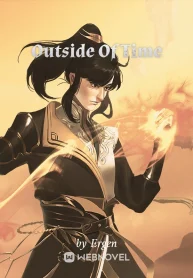Chapter 190: Bad News, Good News
The shells descended in a high arc, making it almost impossible for them to bounce effectively. These shells, intended for Napoleon, were prepared by Joseph and would once again change the role of artillerya crucial weapon called shrapnel. At first, Joseph had grand ideas of developing high-explosive shells to bypass these, but he immediately encountered several challenges:
The first problem was the stability of the shell. High-explosive shells needed to ensure the fuse touched the ground, which required rifled guns. But rifled guns needed large amounts of steel, which in turn required...
If that wasn't feasible, using tail-fins for stability was another option. However, this introduced two more problems. One was the reliability of triggering the fuse, which seemed challenging in the short term. The other was the perennial issue of insufficient gunpowder and explosives. Thus, the need for shells with less explosive material led to the alternative of shrapnel. Even this alternative, however, further transformed the role of artillery in warfare.
After the appearance of the Mini rifle, cannons found themselves in an awkward position. Solid shot artillery couldn't effectively target dispersed infantry, and canister shot's effective range was even shorter than that of the Mini rifle. As a result, cannons, once front and center on the battlefield, became support weapons.
But the arrival of shrapnel shells shifted the advantage of range back into the hands of the artillery.
Shrapnel shells were essentially iron barrels filled with shot. They were fired from cannons and exploded at the right altitude, releasing the shot. These were winged shrapnel, specially designed to be fired at a 45-degree angle by specially made guns, even outdistancing solid shot shells. With their curved trajectory, they could even clear obstacles to strike targets behind them.
Additionally, shrapnel shells played a unique tactical role in creating barriers. When soldiers on both sides had engaged in close combat, artillery was typically rendered ineffective. After all, this wasn't a game, and the enemy could distinguish our artillery shells from the in-game magical ones.
However, troops equipped with shrapnel shells, with the assistance of observation balloons, could fire shrapnel over the intense melee, directly targeting the enemy's rear, hindering enemy reinforcements. If our reinforcements continuously poured into the critical areas while the enemy's couldn't, the outcome of the battle was no longer in doubt.
French shrapnel rained down on the Russian reinforcements, and compared to the previous land mines, these falling objects resembled hail more, covering unfortunate Russian soldiers like sheaves of wheat falling in a storm.
In this battle, the Russian army lost nearly 8,000 men. While this number might not seem significant compared to the approximately 60,000 total Russian soldiers, these were all combatants. In fact, combatants typically constituted only about half of a military's total personnel. For a Russian army of 60,000, the loss of 8,000 soldiers was not a small number.
In this situation, the provisional government had to send orders to Napoleon, urging him to return to defend Paris, while simultaneously calling upon the people of Paris to rise up, just like in 1792, to organize a militia and defend the homeland.
However, the people of Paris did not respond as they did in '92. The times had changed. To use the words of Sophie, a maid once employed by Joseph, "Before the revolution, I had no bread to eat; after the revolution, I still have no bread to eat. Did we not just have the revolution in vain?"
The government members, parliamentarians, and other respectable individuals had grown wealthy, but for the common people, they hadn't gained much real benefits. For them, the revolution that demanded their blood and sacrifice seemed to have been in vain. So why should they shed blood and sacrifice for it again?
Furthermore, in '92, the Duke of Brunswick issued a highly untimely threat to sack Paris, which riled up the people and served as the revolutionary government's best mobilization tool. But today, the more prudent British and Prussians no longer made such statements. Without their support, the provisional government struggled to mobilize the people.
Thankfully, Carnot's efforts in creating conscription mechanisms over the years had gradually improved, and through conscription, the provisional government managed to raise over a hundred thousand troops. But these soldiers, while more skilled militarily than the '92 volunteer militias, didn't possess the same morale.
In this regard, Paris was indeed in imminent danger.
This afternoon, Napoleon received new dispatches from Joseph, bearing bad news for France but good news for the Bonaparte family. "The British-Prussian coalition has captured Lige, and the French army has suffered heavy losses. General Joubert has fallen back to Verdun."
Upon receiving the dispatch, Napoleon was overjoyed. He immediately sent an emissary to the Russian-Prussian coalition, returning their wounded and proposing a ceasefire and peace negotiations.
....
Hello there! We've just hit the fantastic milestone of 190 Chapters. Your invaluable feedback and ratings mean the world to me. Please take a moment to rate this novel at Novelupdate.Follow current novels on novelb((in).(com)







